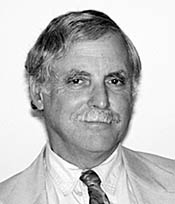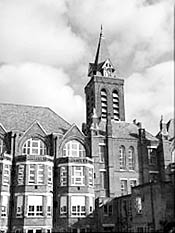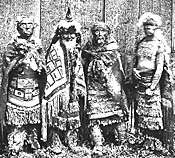|

Mosaic of Memories: Dr Cecil
Helman

Royal Free and University College
Medical school

A group of late 19th century travelling
shamans
|
Doctor in search of emotional answers
From apartheid South Africa to medical anthropology and poetry, Cecil Helman's tales offer an engaging insight into the healing art, writes Sunita Rappai
Suburban Shaman: Tales from Medicine’s Frontline
Cecil Helman, Hammersmith Press, £9.99order this book
PART autobiographical, part anecdotal and part a discourse
on the nature of medicine, Suburban Shaman is a curious, but
always engaging, blend of science and literature. Its central
thesis is that medicine is becoming increasingly impersonalised – or to put it another way, that most doctors treat the
disease and not the patient.
Threaded through the intricate “mosaic of memories”
is a call for a return to the values of the old-fashioned family
doctor – combining the best of Western medicine with the
principles of the traditional healer or shaman.
Dr Helman, a youthful 62, lives in Muswell Hill and is a lecturer
in primary care for the Royal Free and University College Medical
School based in Archway. At various points he has been a poet,
a ship’s doctor, a lecturer at Harvard and for many years
a GP. Writing the book was an attempt, he says, to reconcile
the many different worlds he has occupied.
“My mother was an artist and my father a psychiatrist,”
he says. “I come from this huge family of doctors. But
I always thought there was something else that needed to be
included. For me the missing element was literature – stories
and narrative. So it is an attempt to reconcile two apparently
incompatible worlds – the world of science and the world
of arts.”
But an increasing concern about the directions that modern medicine
is heading in – and the advent of the “techno doctor”
as he calls it – also drove the book.
“There is a blurring of boundaries between patient and
machine,” he says. “I have seen consultants pay more
loving care and attention to a monitor machine or a strip of
ECG paper than to the person lying in the bed.
“It saddens me because it is moving away from medicine’s
traditional role of healing and curing. It doesn’t have
to be so. You can be a techno doctor but a compassionate one.
I fear that we are over emphasising the technical and the numerical
over the emotional and the social.
“I’m not suggesting that doctors become shamans or
traditional doctors,” he adds. “What I am suggesting
is that we learn from their ability to situate their patients
in a wider social context. We need to look at a disease not
as a disease with a person attached but a person with a disease.
And that person exists within a family and a community and not
in a vacuum.”
Few would disagree with this idea and Helman illustrates his
argument well – with references to patients he has treated,
current medical and social theory and his own experiences as
an anthropologist, a lecturer and a medical student.
There is a telling anecdote he recounts of a trip to the wards
when he was still training. “I remember being told that
there was a really interesting spleen, third bed on the left.
And I was having visions of this spleen just sitting there and
of course there was a patient on the bed. The first thing is
to understand what it’s like to be a patient.”
A chapter simply called Hospital – recounting his experience
as a patient in an unnamed hospital after fracturing his ankle
– should be required reading for all politicians. In cool,
dispassionate prose he relates the agony of lying in an impersonal
ward, cold, hungry, bladder full to bursting point, waiting
for a nurse to relieve him.
But if there is a problem with Suburban Shaman – despite
the elegant prose, the thoughtful anecdotes, the insight into
an often forbidding world by a member of the “tribe” – it is that its central vision is essentially backward,
rather than forward-looking.
To many of us, the benign family practitioner is a comforting
ideal. The reality is an overcrowded, underfunded NHS floundering
under financial and political pressures that urgently need addressing.
By focusing on the personal rather than the political, has he
essentially reduced his argument to a plea for a kinder world?
“I’m not a political person,” he says, when I
put this to him. “I’m not built like that. I can only
talk from my own modest fragment of experience. You might say
that I am better on diagnosis than treatment. All I can do is
tell my own story.
“The emotional charge from my own experiences at the hospital
and from what I’m seeing and hearing upset me but I don’t
have any grand solutions. I’m looking at it from the ground
upwards. This is a different way of giving information about
possible policy changes. It doesn’t have to come from the
top down, it can happen the other way.”
|




